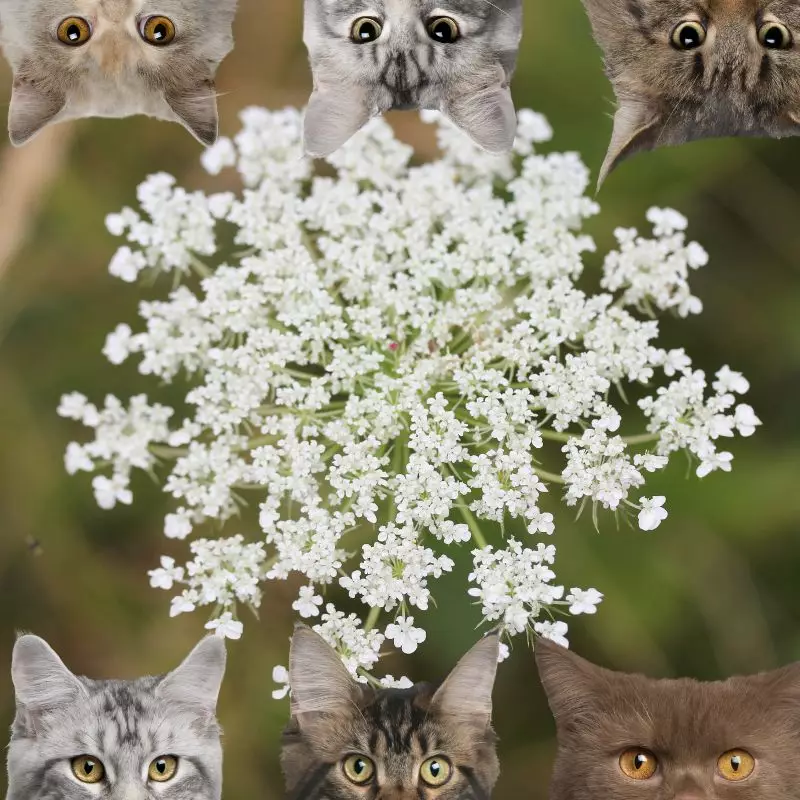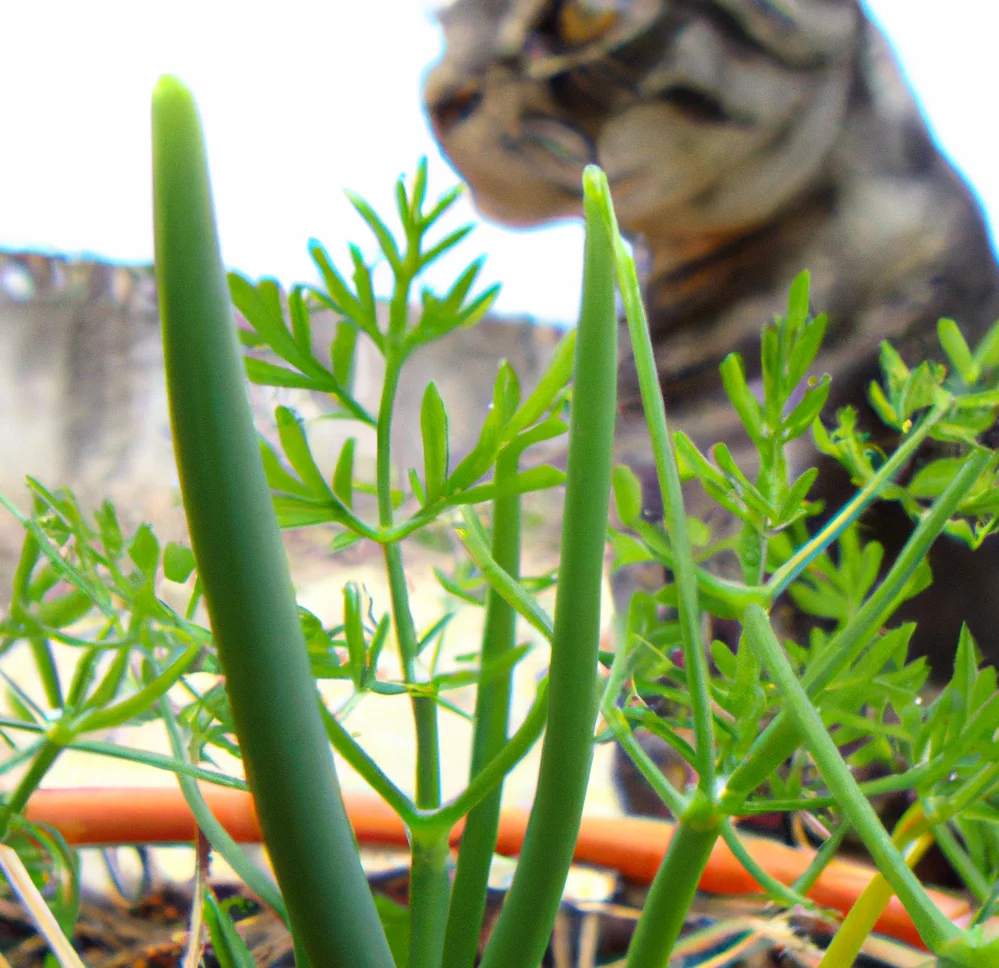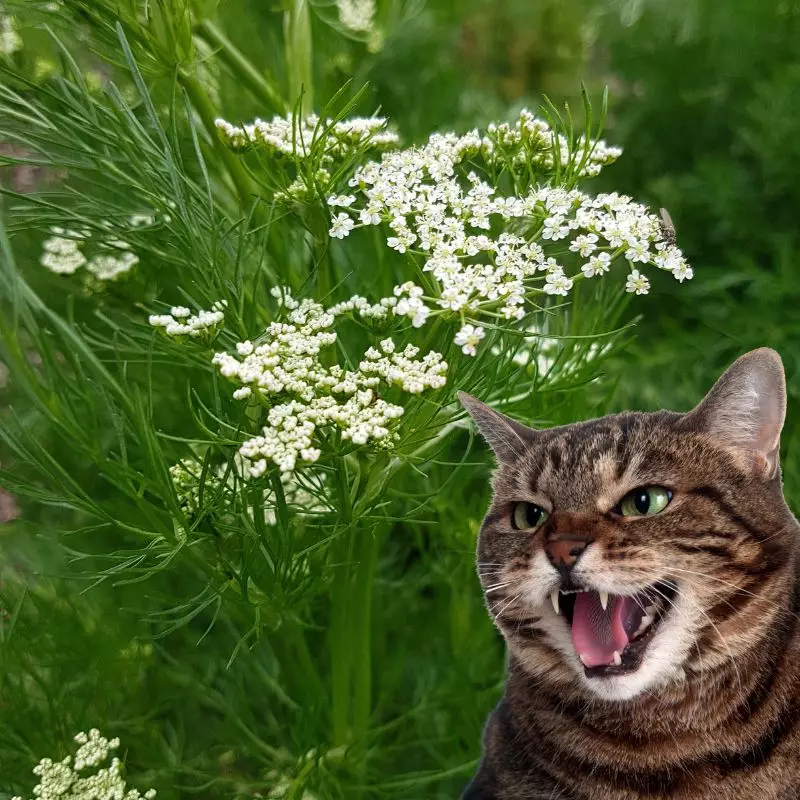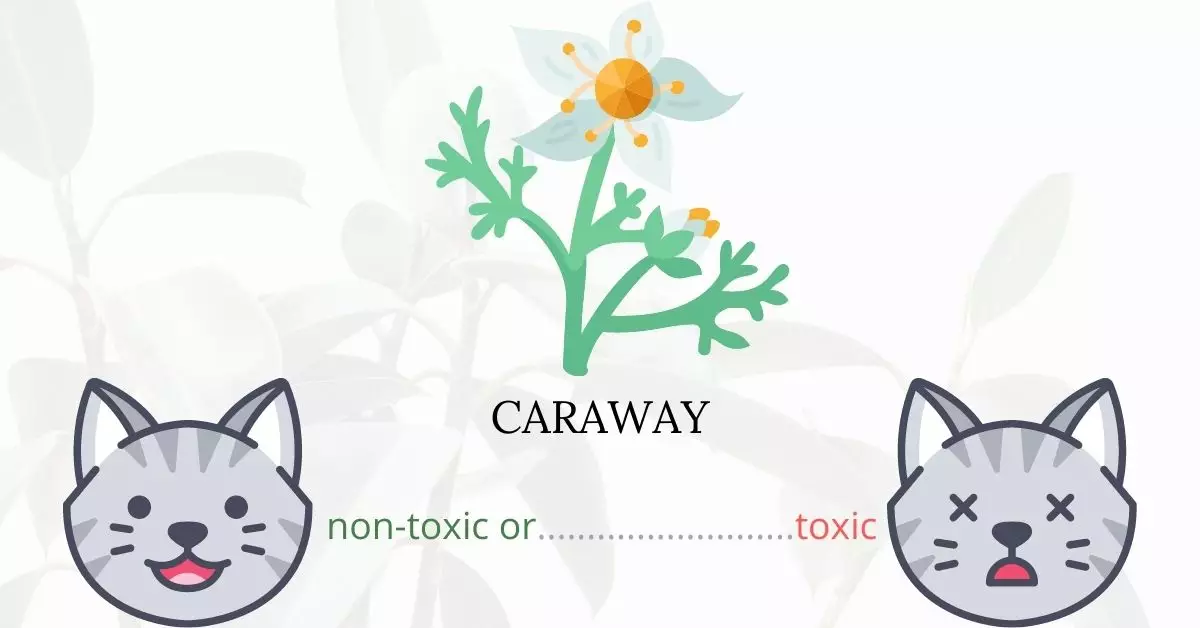Caraway, commonly referred to as Meridian Fennel or Persian Cumin, is indeed toxic to cats. These adverse effects are primarily due to the presence of compounds like carvone and limonene in the plant. Carvone is found in some insecticides and essential oils, while limonene, a type of citrus oil, can be detrimental to a cat’s liver. It’s essential for cat owners to be aware of such risks.
This article has been crafted in collaboration with a team of experienced DVMs (doctors of veterinary medicine). Through their insights, we aim to provide accurate and up-to-date information on the potential risks associated with Caraway and its effects on feline health. Furthermore, our findings are backed by thorough research from high-authority websites, including ASPCA and PetMD, ensuring the utmost accuracy in our assessments of various plants and their potential hazards to cats.
Clinical Signs of Caraway Poisoning in Cats

If a cat comes into contact with, ingests, or even inhales substances from the Caraway plant, certain clinical signs may emerge due to the toxic compounds present in the plant. Understanding these signs and their underlying causes can help cat owners recognize and respond promptly to potential poisoning:
- Vomiting: This is a natural reflex of the body attempting to eliminate harmful substances. If a cat has ingested Caraway, the compounds, especially limonene, can irritate the stomach lining, leading to vomiting.
- Diarrhea: Similar to vomiting, diarrhea is another way the body tries to rid itself of toxins. The digestive system becomes irritated and inflamed, expelling contents rapidly.
- Drooling: Excessive drooling or salivation can occur if a cat has chewed or tasted the Caraway plant. The immediate oral irritation caused by the toxic compounds can trigger this response.
- Excessive Thirst: The presence of toxins in the body can lead to dehydration, making the cat feel increasingly thirsty. It’s the body’s way of trying to dilute and flush out harmful substances.
- Appetite Loss: The feeling of nausea or stomach discomfort caused by the toxins can reduce a cat’s desire to eat.
- Jaundice: This is a critical sign indicating liver damage or failure. The yellowing of the eyes, gums, and skin is due to a buildup of bilirubin, a yellow compound that is usually processed by a healthy liver. Carvone and limonene from the Caraway can damage liver cells, impairing the liver’s ability to function correctly.
If any of these clinical signs are observed, it’s crucial to seek veterinary attention immediately.
First Aid and Treatment of Caraway Poisoning in Cats

Caraway poisoning is treated the same way as other plant intoxication. The veterinarian is the best person to decide on the treatment plant based on your cat’s specific needs.
To restore fluid balances, intravenous fluid and nutritional therapy may be required. If vomiting is prominent, anti-vomiting medicine may be given to help slow it down. Activated charcoal or similar drugs may be prescribed to absorb poisons before they enter the bloodstream, depending on the severity of the poisoning.
Additional drugs may be provided to help heal if acute liver damage or failure has occurred. Antibiotics, antioxidants, diuretics, lactulose, and antiulcer medications may be prescribed by your veterinarian if your cat needs them.
Recovery from Caraway Poisoning in Cats

If Caraway poisoning is treated early, your cat will fully recover in no time. Make sure to follow your doctor’s instructions to the letter, especially if the prescription medications must be taken at home. A change in your cat’s food is recommended, especially if your cat has liver disease. As your cat regains strength, provide a peaceful and pleasant environment for him.
Prevention of Caraway Poisoning in Cats
You should avoid growing Caraway within the vicinity of your home. If Caraway is grown in your neighbor’s yard, keep your cat away from it. Keep your cat busy indoors by utilizing cat houses or play fences. You can also build additional security in the surrounding of your home by installing fences and safety nets to limit your cat from wandering away from your home.
If you love plants but have cats at home, check out these lists:





